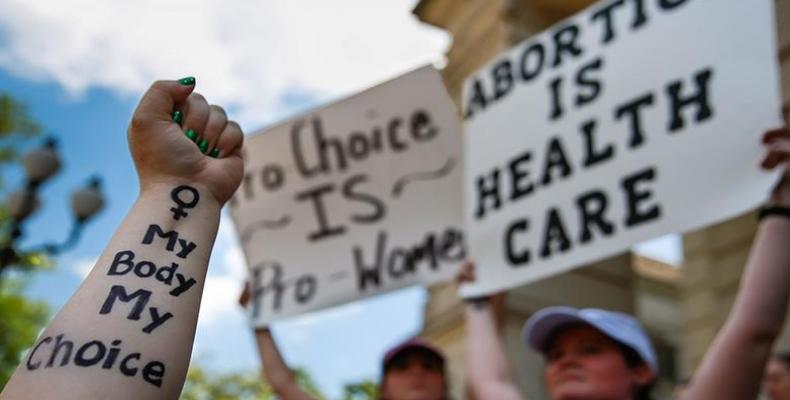Atlanta, October 2 (RHC)-- A United States federal judge has temporarily blocked Georgia's restrictive new abortion law from taking effect, following the lead of other judges who have blocked similar measures in other states.
The law signed in May by Republican Governor Brian Kemp bans abortions once a fetal heartbeat is detected, which can happen as early as six weeks into a pregnancy, before many women realise they're expecting. It allows for limited exceptions. It had been scheduled to become enforceable on January 1st next year.
Lawyers with the American Civil Liberties Union (ACLU), Planned Parenthood and the Center for Reproductive Rights in June filed a constitutional challenge to the law on behalf of Georgia abortion providers and an advocacy group.
U.S. District Judge Steve Jones wrote in an order that the current laws governing abortion in the state shall remain in effect for the time being. Kemp's office had no immediate comment on the ruling, spokesman Cody Hall said.
"Today is a tremendous victory for the women of Georgia and for the Constitution," ACLU of Georgia legal director Sean Young said. "Politicians have no business telling women or couples when to start or expand a family. This case has always been about one thing: Letting her decide."
The law makes exceptions in the case of rape and incest, as long as the woman files a police report first. It also allows for abortions when the life of the woman is at risk or when a fetus is determined not to be viable because of a serious medical condition.
Additionally, it declares an embryo or fetus a "natural person" once cardiac activity can be detected, saying that is the point where "the full value of a child begins." That would make the fetus a dependent minor for tax purposes and trigger child support obligations.
The so-called "heartbeat law" is one of a wave of laws passed recently by Republican-controlled legislatures in an attack on the US Supreme Court's 1973 Roe v Wade ruling that legalised abortion nationwide.
None of the bans has taken effect. Some have already been blocked, and elsewhere courts are considering requests to put them on hold while legal challenges play out. According to the Guttmacher Institute, a reproductive health research and policy organisation, nearly 60 abortion restrictions have been enacted in 2019 as of September 15.


